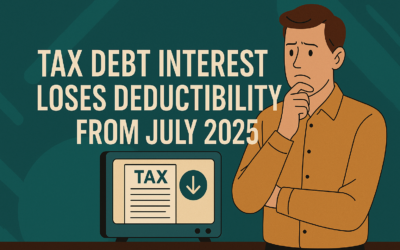It’s no secret that rising interest rates are putting financial pressure on many Australians. With home loan interest rates rising 3% thanks to cash rate hikes from the RBA, many mortgage holders sitting on fixed rates are worrying about what they can expect when their fixed rate term ends.
According to the Commonwealth Bank of Australia, most of their fixed rate loans are set to expire in the first half of 2023 (most of these ending in April/May 2023), meaning that many clients will see a large increase in repayments quite literally overnight.
What happens when your fixed rate expires?
If you let your fixed home rate expire without taking any action, it will generally revert to a variable rate that the lender offers. The revert rate is often higher than the best available interest rates.
There are some things you can do if your fixed rate is expiring this year – and being proactive is never a bad idea.
How to prepare for a mortgage repayment rise
- Refinance to find the best rate
Simply leaving your loan to expire and convert to a variable rate is unlikely to be your best option. Whilst your repayments are likely to increase on any variable loan, you don’t want to be paying more than you need to – so reviewing your options is important.If your fixed rate loan is expiring this year, get in touch with our team to see how we can help. - Review your budget
Whilst we recommend regularly reviewing your household budget, it’s certainly a good idea to look at areas where you could potentially save money to afford your increased mortgage repayments – and the only way to know where you can potentially save money is to know where your money is going. - Make extra repayments before your fixed rate ends
We think that extra repayments are always a good idea when you can afford them.Paying off as much of your home loan as possible before your interest rate increases is a good idea, however, not every fixed rate loan allows you to make extra repayments and others may have a limit on what additional repayments can be made.If you are able to make additional repayments, this is certainly something you should consider as it will reduce you total interest charges. - Increase your income
Ok, we’re not referring to asking for a pay rise, although it might be worth a try.
If you are an investor, you may consider increasing the rent and passing on some of the cost increases.
We have seen some clients Airbnb their properties on weekends, whilst they live with family. This also applies to holiday homes and lifestyle properties that you are not using on a regular basis.
he sale of smaller assets to help cover the increase mortgage payments or increase cost of living is also popular, these include shares, Crypto, motor vehicles/bikes etc.
Not sure where to start?
Start by contacting our team on (02) 9095 6888 or [email protected]
It can be overwhelming when you come to the end of a fixed rate period, but it doesn’t need to be. We’re here to help you navigate the changes whilst finding the best mortgage options to suit your specific needs.




